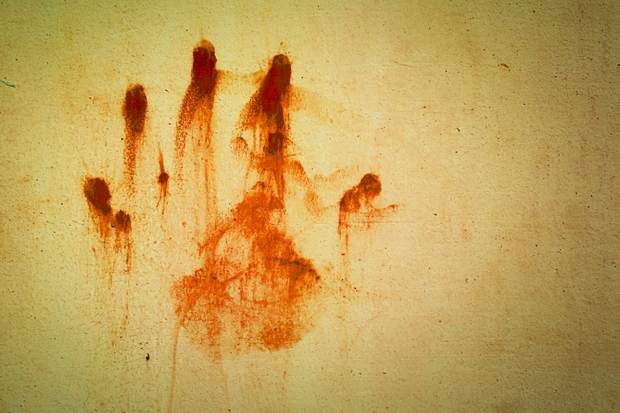A character in Sophie Hannah’s A Game for All the Family (Hodder, £14.99, pp. 432) presents a theory: ‘Mysteries are the best kind of stories because you only get the truth at the very end, when you’re absolutely desperate.’ This makes us realise just how scarce truth is. In books, as in life.
It’s an idea to keep in mind as we follow former television producer Justine on her quest to start a new, quieter life in Devon. This dream proves elusive, as her teenage daughter makes a new friend at school, a friend who the teachers insist doesn’t actually exist. Is the friend real, or just a product of a girl’s imagination? Chapters telling of Justine’s daily battle against threatening phone calls and psychotic neighbours alternate with her daughter’s whodunit story, written as a school English project.
As the two strands intermingle, the novel takes on the mood of a fevered middle-class fantasy gone wrong. Hannah’s previous book was an authorised Hercule Poirot novel. And Christie is definitely the model here, albeit twisted into new bizarre shapes. At the end doubts linger: is there yet another story hidden within the one we’ve just finished reading?
Some truths can hardly be thought about, never mind admitted. Cornflower Blue (Haus, £12.99, pp. 242) by the writing team of Christian Schünemann and Jelena Volic is set in Serbia and concerns itself with the long, difficult aftermath of the Yugoslav wars. Two guards from a unit of elite soldiers are found dead. A military court declares them victims of a ritual suicide pact and the investigation is closed.
However, inconsistencies in the report draw researcher Milena Lukin into the case. The guardsmen were murdered on the anniversary of the Srebrenica genocide; are their deaths connected to those terrible events in some way? Lukin comes up against the might of the military establishment, who have no interest in owning up to past evil, nor in punishing those
who are truly responsible. A lie becomes doctrine.
The authors unflinchingly examine a country’s guilt, and the subsequent attempts to forget, or even deny, the acts that led to the guilt. But the past infects the present, as it must. Milena makes a beguiling detective, and the details of her everyday life afford as much pleasure as her investigation. And the fact that the story offers no easy closure only adds to its power.
A very different set of problems beset the characters of John Niven’s The Sunshine Cruise Company (Heinemann, £14.99, pp. 368). Susan Frobisher is turning 60 when her husband dies, leaving her mired in debt. Finding herself at her local bank’s mercy, Susan decides to take on the bank at its own game: she robs them of a cool £4 million. Her accomplices include an 87-year-old maniac in a wheelchair called Ethel.
This is a bawdy, gaudy, rock ’n’ roll spree of a book. The first chapter reads like a Radio 4 afternoon play, but we’re soon off and running (or should I say lurching?), burping, boozing, cursing and carousing our way through the high jinks. It’s as filthy as a weekend in Clacton-on-Sea, with the requisite pain and loss hidden just beneath the bedsheets. That great English dream — to escape to foreign climes with a nice little bundle — only really works when the life you’re running from doesn’t come chasing after you in the form of a sweating, corpulent, flatulent copper called Boscombe. But by the end, you’re cheering the ladies on, wishing them well, hoping they find their escape route.
F.H. Batacan’s Smaller and Smaller Circles (Soho Crime, £7.99, pp. 360) is a labour of love and hate. It’s set in the Philippines in 1997, 11 years after the end of the Marcos regime. Father Saenz is a forensic anthropologist who helped the authorities in identifying the remains of victims of the regime’s slaughters. Now he finds himself tackling a different kind of crime: a serial killer is murdering teenage boys and leaving them on the dumps, where they make their meagre living as scavengers. This is a traditional thriller in every way, from the mutilated corpse discovered in the first pages to the morgue work and psychological profiling.
But the Manila location keeps it fresh, and Saenz’s role as a Catholic priest allows him to react to people in a more personal way than any detective could. Auden’s line ‘Those to whom evil is done, do evil in return’ is quoted, and it’s well chosen. One especially moving chapter describes three different mothers reacting to the news that their sons’ bodies have been found and identified.
This is a book of healing. It reminds us that truth not only exists at the end of a story, but continuously through the present moment, woven as traces, hints and clues to be grasped at even as they pass.






Comments